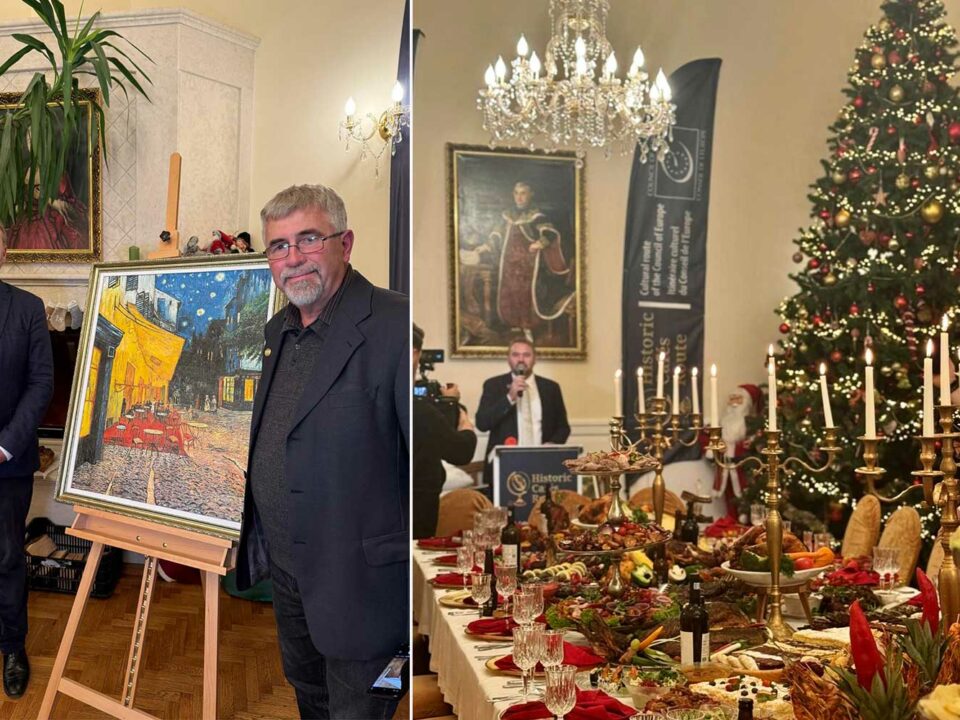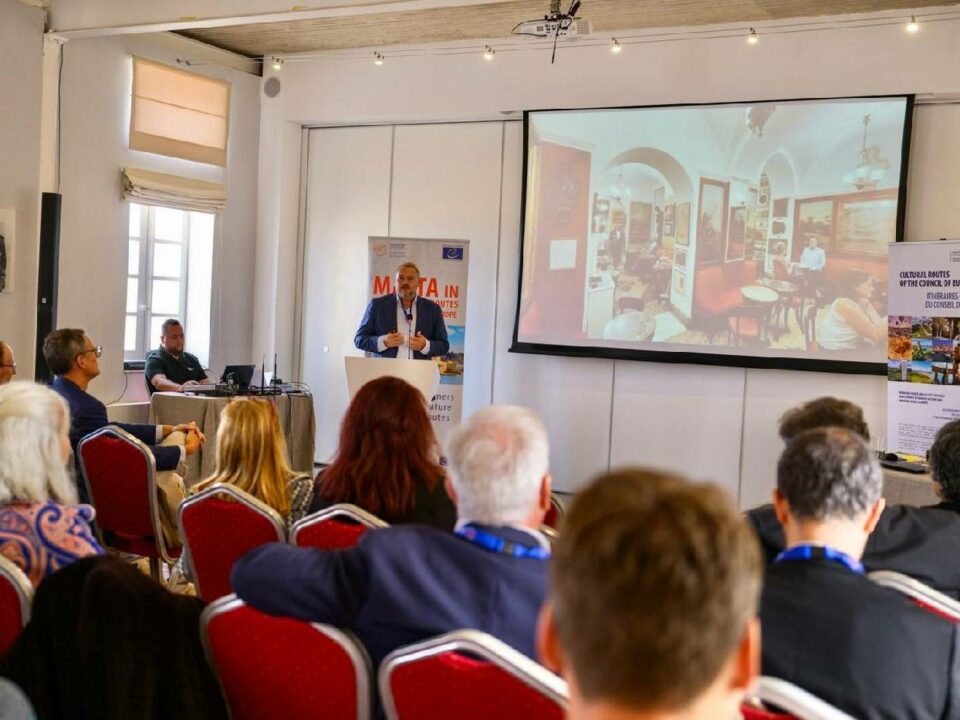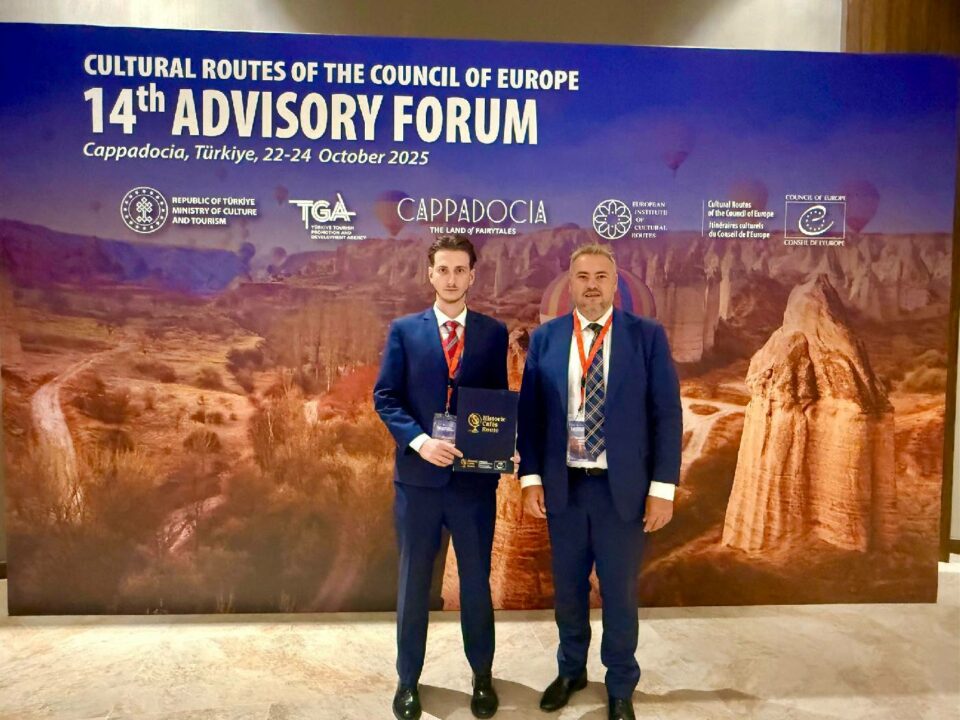A “Best Practice Award” for Historic Cafés Route
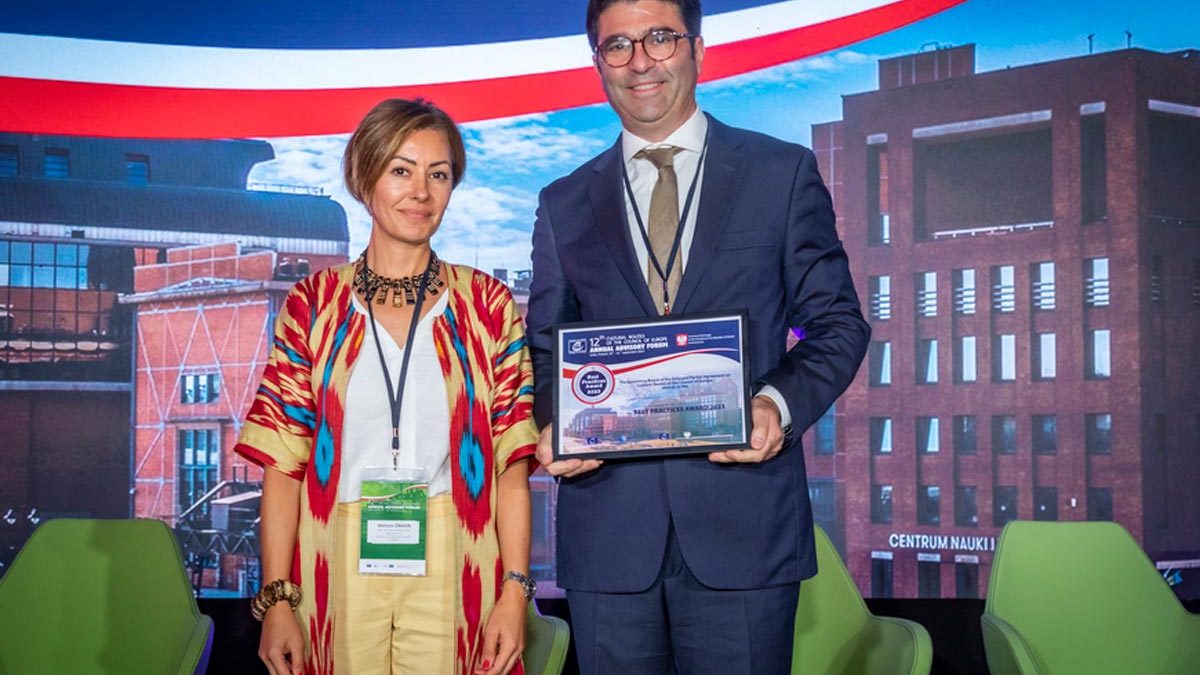
Historic Cafes Route gained a “Best Practice Award of the Cultural Routes of the Council of Europe” for Enhancing Memory, History and European Heritage. The award was given on 22 September, in Łódź, Poland during the closing ceremony of the 12th Annual Advisory Forum of the Cultural Routes of the Council of Europe.
The award was received by Mr. Vitor de Sa Marques, HCR member of the Board of Directors and HCR Ambassador in Portugal (main photo).
HCR was nominated for this prestigious award grace at the Torino Conference on “Historic Cafés Route – tangible and intangible heritage”. The event was held at the emblematic Gallerie d’ Italia in Piazza San Carlo, and it was a co-organization of HCR and the Association of Historic Cafés of Turin and Piedmont.
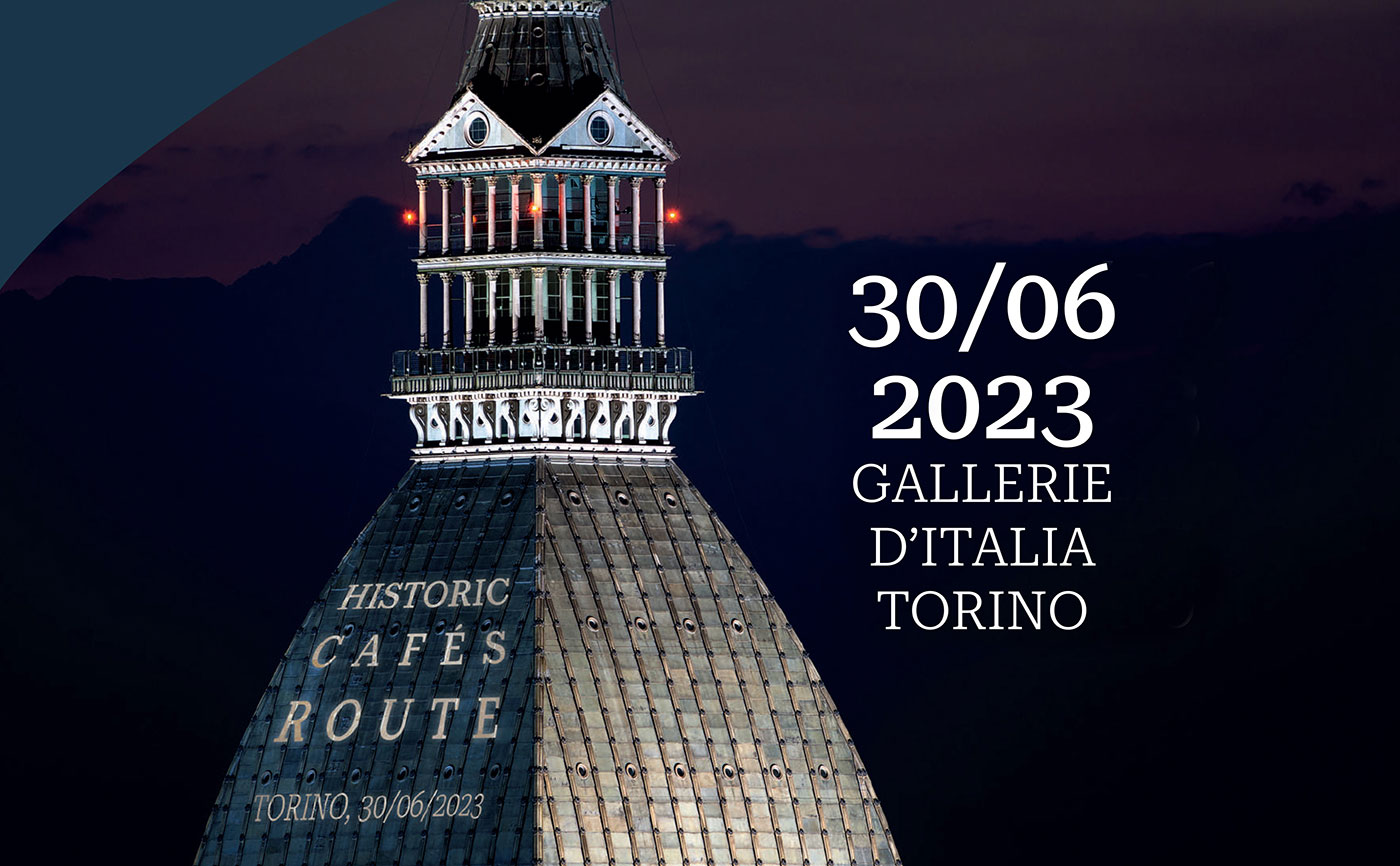
The Conference had important speakers that elaborated the significance of Historic Cafés Route, but also, of the Cultural Routes in general. Michele Copolla, the Directors of Gallerie d’ Italia, Alberto Cirio, the President of Piedmont Region and Edoardo Cavagnino, the President of the Association of Historic Cafés of Turin and Piedmont opened the Conference.
Amongst the speakers were Maria Vittoria Poggio, Councilor for Culture, Commerce and Tourism of Piedmont Region, Rosanna Purchia, Councilor for Culture of the city of Turin, Paolo Bertolino, General Secretary of Unioncamere of Piedmont, Dario Gallina, President of the Chamber of Commerce of the City of Turin, Roberta Alberotanza (Former Task Force for the Italian Presidency of the Committee of Ministers of the CoE) and Barbara Toce (Former Vice-President of the Congress of Local and Regional Authorities of the CoE).
Also the Conference there were representatives of Cultural Routes certified by the Council of Europe that cross the Region of Piemonte, Andrea Archinà (Bureau Member of the European Association of the Via Francigena Ways and Mayor of Avigliana), Emanuela Panke (“Iter Vitis” International Federation), Eleonora Berti (European Federation of Napoleonic Cities), Renata Santoro (Association of Significant Cemeteries in Europe, ASCE), Raffaella Caria (European Historic Thermal Towns Association, EHTTA).According to the Council of Europe, the selection process of the awarded Routes was made by the EPA Governing Board and certificates were presented by Ms. Urszula ŚLĄZAK (Poland), Chair of the EPA Governing Board and Mrs. Meltem ÖNHON (Türkiye), Vice-Chair of the EPA Governing Board.
4 certified Cultural Routes of the Council of Europe received a “Best Practice Award” for their outstanding efforts in promoting cultural heritage through innovative practices:
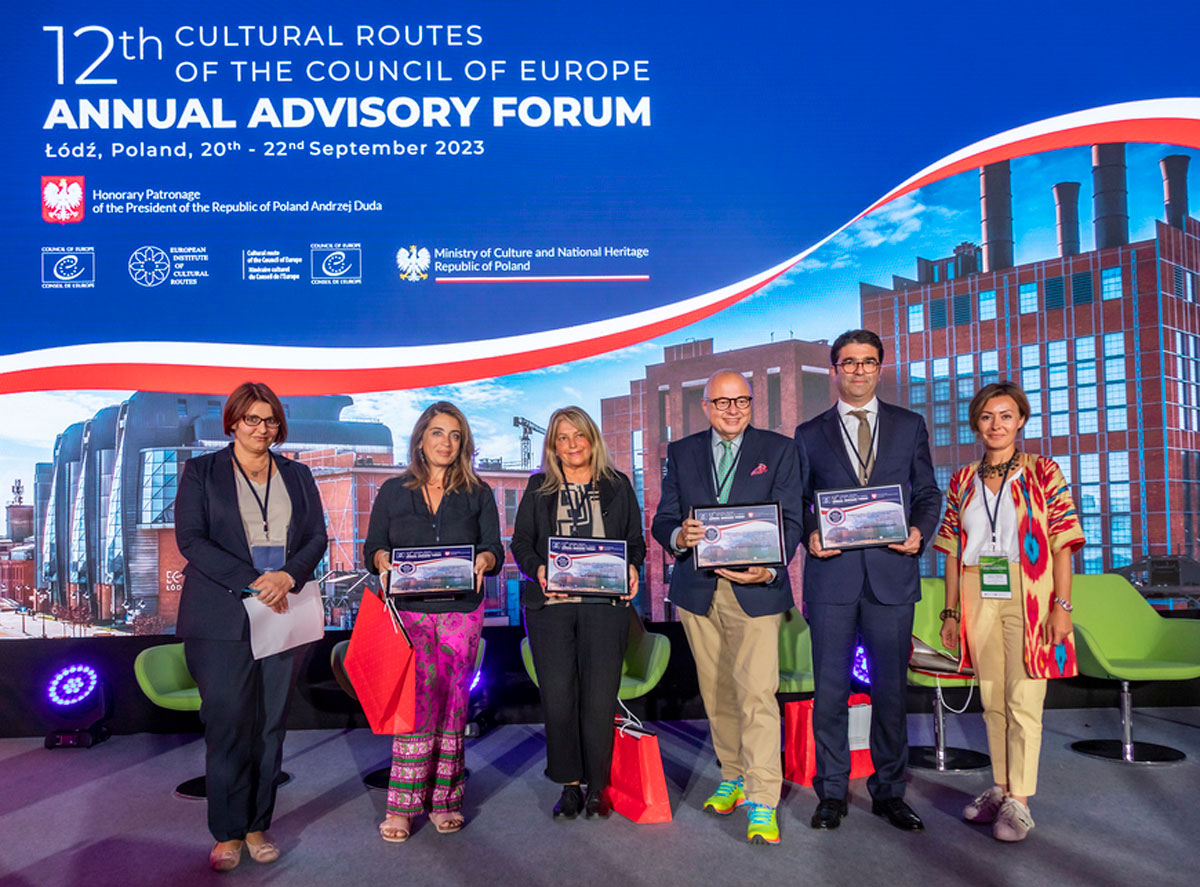
• Historic Cafés Route – Enhancing memory, history and European heritage
Οn 30 June 2023, at the Galleria d’ Italia in Piazza San Carlo, Turin, representatives of the Historic Cafés Route held the conference “Historic Cafés Route – tangible and intangible heritage”. The conference aimed to highlight the importance of Historic Cafés for our shared European history and memory, and ways in which certified Cultural Routes of the Council of Europe can cooperate to promote memory, history, European heritage and cultural tourism in specific areas through cultural tourism products.
• European Route of Industrial Heritage (ERIH) – Cultural and educational exchanges for young Europeans
The European Industrial Heritage Summer School was an intensive 14-day programme (5th to 20th August 2023, Berlin, Germany). It combined interdisciplinary knowledge transfer and practice-oriented project work in the field of sustainability. During the first week students focused on discussing industrial heritage and sustainability. The second week featured workshops on how places of industrial heritage can become places of good practices in sustainability.
• European Route of Ceramics – contemporary cultural and artistic practices
Implemented over the course of 2022 and at the start of 2023, the European Route of Ceramics implemented a pilot action in the framework of the WalkEur project (co-financed by Creative Europe) with the aim to enhance, preserve and empower the cultural heritage linked to ceramics in Europe. Through creating digital access, the experimental platform was designed to map the ‘know-how’ of the ceramic sector, involving all the members of the European Route of Ceramics and thus offering a digital journey along the Cultural Route in the form of an interactive journey.
• Iter Vitis – Cultural tourism and sustainable cultural development
Lugana has been the first wine tourism destination in Italy to host an Iter Vitis walking path. Iter Vitis decided to build this pilot project for a future network of European vine paths aimed to celebrate landscapes, characteristic places, archaeological and historical sites and winegrowing. The Lugana path was tested by a first group of journalists, wine tourists and influencers from 24-26 May 2023, to select the items that will be integrated into the walking path and to evaluate the difficulties of the route.
A dedicated webpage on the 12th Annual Advisory Forum on the Cultural Routes of the Council of Europe, its streaming videos, pictures and presentations can be found here.


